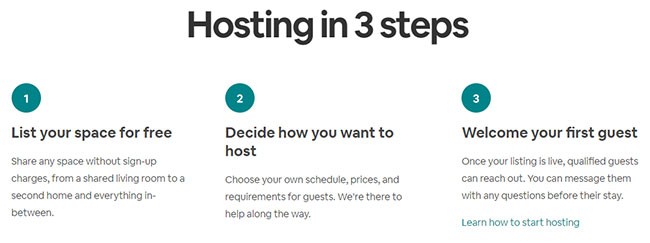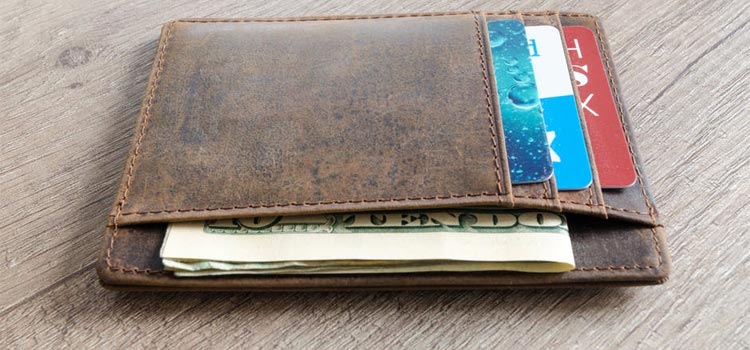If you own a house, extra room, condo unit, or any other type of similar property that’s unoccupied entirely, most of the year, or even just for a few days a year, you probably want to know how to rent your house out to make some side cash.
- Inbox Dollars - Get paid to check your email. $5 bonus just for signing up!
- Survey Junkie - The #1 survey site that doesn't suck. Short surveys, high payouts, simply the best.
- Nielsen - Download their app and get paid $50!
Well, today’s your lucky day!
You can rent out this space and make some extra side cash. You can even turn this into a full-time earning machine if you go with a rental agent.
And because the Airbnb era is here, even ordinary homeowners can accommodate renters and guests short-term.
Read on for a comprehensive guide to renting out your house.
3 Options for Renting Out Your House
If you’re planning to rent your house out, you need to be armed with information about taxes, maintenance costs, as well as pros and cons for all the options available to you.
These details will help you decide if you’re ready to rent out your house to someone else either temporarily (via services like Airbnb) or long-term (advertised on your own or managed by a third-party rental agent).
1. Long-term Rentals
There are various instances wherein long-term rentals may be best suited for you. These include:
- Getting a newly inherited property
- Having a second property, such as a summer house, that you only visit a couple of times a year
- You’re the only one living in a big house
- You invested in a condo unit, but have no immediate reason for leaving your current home
Those who would benefit from long-term rentals are people with extra space or property aside from the one they currently reside in.
The main benefit of renting out your house long-term is that the extra income is definitely significant and consistent.
There are, of course, downsides to long-term rentals, including:
- Property destruction — The longer tenants stay in your property, the higher the chances your property will get destroyed, whether it was intentional or not. Some landlords specify that no young kids and pets are allowed, since they’ve been known to mess up paint jobs, carpet, and other house features more quickly than older kids and households without pets.
- Insurance — No matter how long you rent out your home, that space becomes an investment property. As a result, you’ll have to obtain insurance specified by the state where your property is in. Airbnb has some insurance offered to hosts renting out their properties, but it’s still better to check with your insurance provider because factors like the length of the lease can affect the premiums.
- Local regulations — Aside from insurance, check with city hall about local condo regulations, professional lease or landlord agreements, and so on. You have to be updated with these things since breaking laws can cost you a lot in terms of fines and loss of potential income.
- Collecting rent can be difficult — If you’re not hiring a property manager (more on this later), it means you’ll have to collect rent by yourself, which can be a challenging task.
Traditional real estate websites, such as Rent.com, Realtor.com, Homes.com, Zillow, Zumper (and so on) will let you list your homes as long-term rentals. Some of these sites come with a fee for two or more properties, while others rely on advertising for revenue so landlords can list for free.
2. Short-term Rentals
Short-term rentals would be better for homeowners who have an extra room, extra floor, a garage, or other spaces they could rent out temporarily.
The main benefit of going this route is that you can even be residing in the property for rent and only make it available during certain periods. For example, if you go on a yearly trip overseas, you can list your property on Airbnb only during those days, weeks, or months.
The downside to renting out your house on a short-term basis include:
- Tax Responsibilities — In the eyes of the IRS, “short-term rentals” shouldn’t go beyond 14 days in a year. If it does, you’ll need to file it properly. FYI, Airbnb automatically sends tax forms documenting all income to the IRS, so if you skip your tax responsibilities, don’t be surprised if you’ll still get a letter from the federal agency.
- Less income — Unfortunately, making your place available to guests for only a limited time also means you’d receive less income. If you’re only looking for some side cash, then this could be the solution for you, but if you need this rental space to help with expenses monthly, short-term rentals may not help that much.
- More clean-ups — Because the turnaround for vacation rental properties like this is high, you’d have to keep the place clean for the next guest. This is especially true if you’re planning to rent out your place every weekend. The good news to this though is that platforms such as Airbnb allow you to charge a cleaning fee, and there are services like Guesty to handle cleaning for you.
A Word about Renting Your Home Furnished vs. Unfurnished
Whether you plan to rent your house short-term or long-term, you’d have to clean up your place and do a bit of sprucing up. This also means you have to remove your valuables, such as heirloom flower vases, jewelry, collector’s items, and so on.
Note that if you’re renting your house for only a few days, weeks or months, expect that tenants would prefer furnished homes. Depending on your circumstance and property, this could add costs for interior design.
People looking for homes to rent for a year or more usually look for unfurnished homes since it would make sense they’d bring in their furniture and other stuff for long-term residency.
3. Renting out Your Garage, Yard, and Other Outdoor Spaces
For those who don’t have space inside their homes or an extra property for rent, but live in a tourist destination city, you may earn some cash renting out your garage, yard, or other outdoor spaces.
Garage
Tourists traveling by car into your city (that has strict rules about parking just anywhere) will pay per day/night to avoid sky-high penalties, jail time, or getting towed. This is your chance to offer your garage for a fee. You can even choose a niche and cater to a specific vehicle type. For instance, if you have a large garage, you can advertise it as a parking space for SUVs, RVs, or even for boats.
If your garage has access to a functional bathroom, you can even deck out your garage into an extra room. It won’t be as fancy as villas and beachside properties, but if you offer fair pricing, there’s a good chance guests will bite.
Yeah, some people also need extra space for storing stuff. List your garage on websites like Stow It! and decide on your monthly rental fee.
Yard and other Outdoor Spaces
-
- Weddings and other events — Depending on how spacious your garden is and how many people or tents you can accommodate, you can earn quite a substantial amount if you rent out your backyard even once a month. The downside is that even small events can have a ton of logistical issues. From problems with catering, bathroom, equipment, parking, even the weather can ruin events. Make sure you partner with an events coordinator before you list your yard for rent.
- Campsite — With Instagram folks showing off their “glamping” (glamorous camping) adventures left and right, there’s a sudden spike for dressed up campsites. If your outdoor space has a good view of nature, try to build luxurious tents or campsites for this crowd and wait for the guests to come.
How Much Should You Charge for Rent and Security Deposit?
If you decide to rent out your house, you need to be aware that you can’t arbitrarily decide on how much rent to charge.
No joke. Here are the fastest ways to make easy money online. Click here to see how.
You’ll need to know the fair market rent for your house by doing research. Generally, your house should go for the same amount as other rental properties in the same area and are about the same size and condition.
You can start your research by looking at similar properties online.
The security deposit is a separate sum of money paid by a tenant to ensure that they fulfill the terms of their lease.
Because this is a deposit, this needs to be held in a separate bank account and returned to the tenant when they move out, minus any damages or losses that need to be repaired or replaced.
Should You Hire a Property Manager?
In contrast to rental agents, who focus on handling matters before the lease is signed, property managers take care of the property and tenants after the lease is signed.
Essentially, property managers are focused on customer service, property maintenance, rent collection, and other matters that involve the relationship between the landlord (that’s you), and the tenant.
A property manager will cost you additional in salaries, but if you don’t live on the property and/or don’t want to be bothered by these tedious yet necessary tasks, paying a property manager to do it should be worth it.
5 Ways to Rent Your House Out
Now that you know your options, if you decide that short-term leases are the best fit for you, the following is a list of sites and apps where you can list your house for rent.
Join one or all of the websites below, check out their rules, and list your property away.
1. Airbnb
Launched in 2008, this San Francisco-based company grew in record time thanks to how properties are shared on social media and the rise of travel bloggers seeking inexpensive yet Instagram-worthy vacation rentals.
Airbnb isn’t the oldest site like it, but with over 80 million monthly visitors, it surely leads the pack.
As the host, Airbnb lets you set the price per day and “required minimum stay,” which means you won’t have to worry about unappealing travel days (such as Sundays, or the day after a holiday).
2. Vrbo
Vrbo, short for “Vacation Rentals By Owner,” was launched in 1995 by David Clouse to rent out his condo. Since then, it has grown to list two million properties around the world and one of the best options to rent out your house.
Vrbo claims that members who list their properties receive an average of 120 inquiries per property every year, with its top members earning up to $60k annually from their Vrbo listing.
Hosts can choose from paid and free-to-list options. Paid members can further choose a subscription model ($499 per year) or pay-per-booking (pay around 5% for every property booked).
3. FlipKey
TripAdvisor is one of the most popular websites people go to when searching for reviews on hotels, beach resorts, and other rental properties from real travelers who have gone there. So when the company bought FlipKey, a platform that lets property owners list their space, it made perfect sense.
Similar to Airbnb, hosts pay FlipKey 3% on a pay-per-booking model. Unfortunately, guests suffer from the host’s low fee since they shoulder up to 18 percent more on top of the property’s fees.
This is kind of a bummer if you’re a guest. But as a host, just imagine the 448 million people visiting TripAdvisor each year that will remain untapped if you skip FlipKey and list your vacation rentals elsewhere.
You can make money from home and it doesn't have to be challenging. Click here to see how.
4. Luxury Retreats
If you have luxury accommodation to offer, join Tripping.com’s Luxury Retreats and give guests an unforgettable experience.
Properties here come from all over the world and range from beachfront homes to vineyards, mini-mansions, and the like.
Note that since vacation rentals here are above the ordinary, the clients would expect personal concierge service, guest support, and other special services.
Plus, not everyone interested in renting out their house can list a property here (Luxury Retreats claim only 5% of applications are approved).
Homeowners don’t need to pay a sign-up or membership fee, but if your property is accepted you get to follow a pay-for-performance model.
5. VaycayHero
For homeowners with properties “on par with hotel chains,” VaycayHero may be the website to go to.
It’s a bit different from others on this list, as the San Francisco company vets all vacation properties ahead of time. It’s a win-win for guests and hosts!
Runners-up:
- Booking.com (free forever for your first 5 listings)
- HomeToGo.com (world’s largest search engine for vacation rentals)
- Homestay (for genuine local feel)
- Go With Oh (apartments for rent in Europe)
- OneFineStay (above $1,000/night high-end properties)
Final Thoughts
Everyone dreams of getting paid to do nothing. Renting out your house to other people is a legitimate and honest way to make quick money in one day (even while sleeping).
If you decided to rent out your property temporarily, you can list your property online on sites like Airbnb and its alternatives. The secret of a successful listing (aside from having an irresistible property) is effective marketing offline and online.
If you don’t have time to monitor listings across different websites, juggling upcoming guests, answering inquiries, clearing possible tenants, and handling paperwork, you can hire a rental agent who will handle almost everything for you, often for a fee or percentage of the booking. Aside from these, your rental agent will make sure that all local and state laws are followed during the process.
After the lease has been signed, it would be more convenient for you to hire a property manager so that you don’t have to be hands-on when it comes to collecting rent, scheduling repairs, and handling tenants’ concerns.
If you decide you don’t want to rent out your house, there are other things you can rent out to earn some side cash. Go over how to rent out your car, as well as this list of stuff you can rent out.
Are you planning to rent out your house? Did this article help you? Tell us in the comments!






